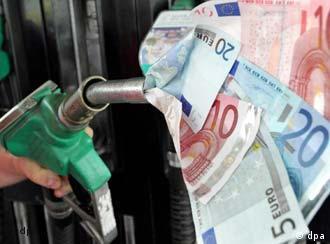The African Refiners and Distributors Association (ARDA) says it plans to achieve a single grade of Premium Motor Spirit (PMS), popularly called petrol, within the continent by 2030.
Its Executive Secretary, Mr Anibor Kragha, disclosed this at the CEO Strategic Session One at the ongoing 24th World Petroleum Congress (WPC) on Monday in Calgary, Canada.
The session has theme as “Market Outlook for Petrochemicals and Refineries of the Future.”
Kragha said there were different grades of petroleum products across Africa which had its health implications.
In partnership with the African Union, he said that ARDA was working on the adoption of harmonised Pan African clean fuel specification, particularly Afri 6 or 10 per of gas per million parts of air(ppm), specification for fuel across Africa.
“It may interest you to know that in Africa we have 11 different grades of diesel or gas oil engine from 10 ppm to 10,000 ppm and for gasoline.
“We have 12 different grades ranging from 10 ppm to 2,500 ppm. So, that initiative is to have a single 10 ppm grade by 2030 across Africa,” he said.
According to him, one of the key objectives of ARDA is to champion investments across the entire downstream value chain and more recently geopolitically.
He said the continent was not directly involved in the Russia-Ukraine crises, though focused on its energy security by possibly maximising crude oil in African refineries and transportation of cleaner fuels.
This, he said, was from African refineries via integrated storage distribution infrastructure across the continent.
Kragha also said that in order not to have a health crisis, the continent must ensure cleaner fuels like Liquefied Petroleum Gas Gas(LPG) for cleaner cooking.
According to him, the future is very bright for refining in Africa.
On the low refining capacity in Africa, which is putting a strain on its foreign exchange due to huge petroleum product importation, Kragha said ARDA would continue to promote and support increased investments.
He said that this would also help to ensure continent’s growing petroleum products demand was met with cleaner fuels.
“For example, last week, ARDA delivered the Keynote address for the downstream panel at the Angola Oil and Gas 2023 Conference.
“It focuses on integrating local players into Angola’s downstream sector and highlighted its drive, led by Sonaref, to increase its refining capacity from 65,000 barrels per day (BPD) to 425,000 BPD by 2027.
“ARDA is also very supportive of NNPC Limited’s refinery revamp initiatives and the game-changing 650,000 BPD Dangote refinery in Nigeria as well as the various projects by SIR in Cote d’Ivoir and SAR in Senegal.
”It also includes other ARDA members across the continent to deliver refined petroleum products locally,” he added.
The ARDA boss said the prospects for the African refining and petrochemicals sector over the next few decades were bright.
This, he added was because of the combination of significant increased energy demand and major population growth over the period.
He said given Africa’s relatively small contribution of just 2.73 percent of global cumulative CO2 emissions to date versus 33 percent for the European Union and 29 per cent for North America.
Kragha said that the continent needed a just and equitable African downstream energy transition plan on cleaner transport and cooking fuels in the near term which is mature and cost-effective renewables.
He maintained that ARDA was working on a decade-by-decade (2030 to 2050) African Downstream Energy Transition Plan and associated finance plan that would deliver the continent’s specific energy requirements, while balancing its security needs.


